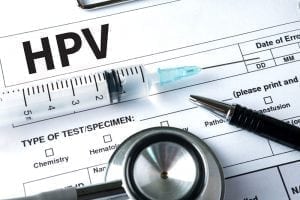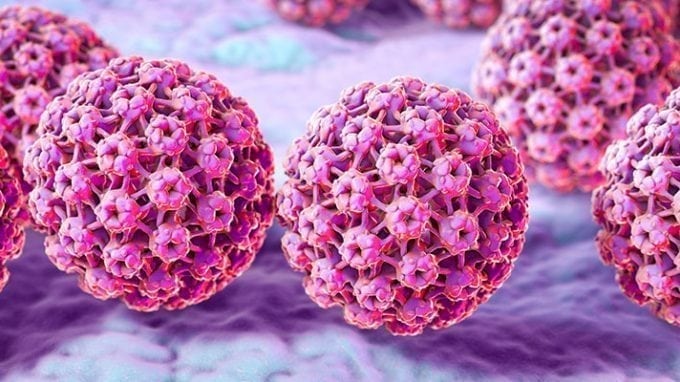HPV is the most common STI (sexually transmitted infection) in America. The virus alone does not cause infertility; however, the subsequent related conditions that can result may affect fertility.
The human papillomavirus is a group of viruses, and there are over 150 types. According to the Centers for Disease Control and Prevention (CDC), the infection is so common that it will affect nearly all men and women at some point in their lives.
Transmission of HPV and the Symptoms

While the infection usually goes away on its own, it can cause more severe conditions. One of those conditions is cervical cancer, which may affect fertility. Symptoms also include genital warts and other types of cancer.
Genital warts will appear on your skin around your genitals and anus. While warts can be uncomfortable and upsetting, they are not harmful. Genital warts can be treated with a prescription.
A more serious outcome of the human papillomavirus is cancer. The infection can cause cancer of the cervix, vagina, vulva, penis or anus. You can also get cancer in the back of the throat as a result of oral sex.
Cancers and Fertility
HPV can cause you to develop precancerous cervical cells or cancer of the cervix, which can affect fertility. It’s important to get precancerous cells treated as soon as possible, and a reason why yearly pap smears are critical as they lead to the detection of precancerous cells. If you develop precancerous cells that need to be removed, the procedures used to remove them may make it more difficult to get pregnant or carry a baby to term.
When cells are removed from the cervix, the production of cervical mucus can be affected. Cervical mucus is what helps sperm swim to the egg. If movement is hindered, the sperm may not be able to reach the egg to fertilize it.
If enough cervical tissue is removed, it may weaken the cervix. This can lead to an incompetent cervix, also known as cervical insufficiency. The condition causes early dilation (opening of the cervix), which can lead to a premature birth or miscarriage.
More severe cases are when precancerous cells are not treated and turn into cervical cancer. When caught early, cervical cancer is one of the most treatable cancers. However, if the cancer progresses, it can lead to a hysterectomy. A hysterectomy is the removal of the uterus, which results in not being able to get pregnant. This further highlights why annual pap smears are important.
As noted, there is a risk of other forms of cancer and possibly treatment such as radiation or chemotherapy that may also affect fertility.
Vaccine

While the human papillomavirus alone does not cause infertility, it can lead to conditions that may affect fertility, specifically cervical cancer. Regular yearly exams are important for the detection of precancerous cells to maintain health and fertility.




